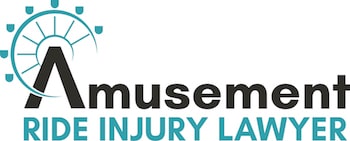Amusement Park Regulations
Only 44 out the 50 states have government regulation of amusement parks. Connecticut is one of them and has partial government oversight by the Department of Consumer Protection. The Department of Consumer Protection is in charge of outlining the rules and enforcing the rules for the amusement parks. The DCP holds amusement parks accountable for inspections, cleanliness, and warning signs.
Inspections
The DCP says that all rides and devices must be inspected annually. These inspections must be done by the Department of Emergency Services and Public Protection (DESPP), Division of State Police, Fire and Explosion Investigation Unit. “Devices” that must be inspected are all the mechanical rides and inflatables at the amusement park.
Injuries
Some of the regulations of amusement parks include that all accidents must be reported within 4 hours. Injuries that must be reported are any that create risk of death, disfigurement, impairment of health, or loss of the function of an organ. This definition is defined by the Connecticut penal code. Another regulation is that signs and first aid stations must be appropriately placed in the park. Lastly, there must be a lifeguard who is over the age of 18 present at all times that a water park is functioning.
These regulations, along with others, prevent amusement park owners and staff from not getting rides inspected, not keeping the park clean enough, not warning park visitors, or taking short cuts with safety personnel. Although the state of Connecticut has these regulations to take preventative measures, many mistakes still happen.
Abiding by the Rules
On the other hand, it is up to amusement park visitors to abide by the rules set forth by the parks that they are visiting. On any amusement park website, you can find the safety and conduct rules. For example, at Lake Compounce, guests cannot bring animals, weapons, selfie sticks, hover boards, drones, radios, etc. These rules have been set in place by Lake Compounce, and they must be followed. These items that are prohibited may put people in danger if brought in and used at the park. Not only must the amusement park and staff follow rules and regulations, but the visitors must also follow rules set in place to prevent injuries.
Getting Help
If you believe that a Connecticut amusement park did not follow rules and regulations, and you were injured as a result, you may have a personal injury case. Contact us to learn more about your options and how to get help.

